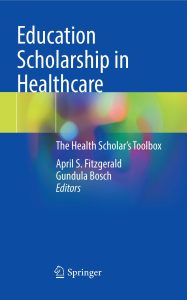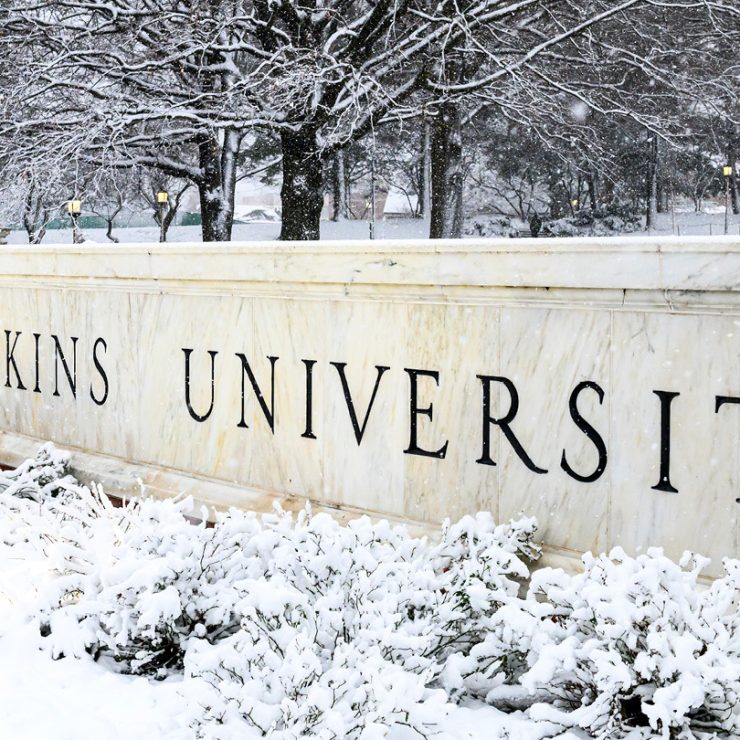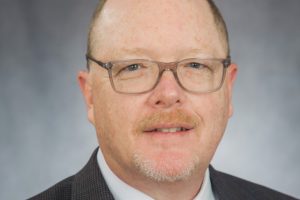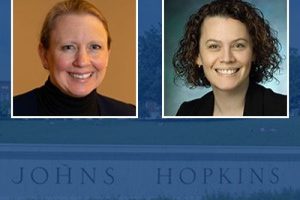The MEHP newsletter highlights news and achievements of Johns Hopkins Master of Education in the Health Professions students and alumni.
MEHP Program Recruiting New Applicants
Do you know someone who could benefit from the MEHP program? As a fellow, faculty, alumnus, or friend, your experience with the program and as an educator puts you in a unique position to help us identify prospective fellows. In addition to the academic requirements for admission, candidates must have a passion for education, aspire to a career that incorporates clinical work with teaching, and be committed to educational research and scholarship.
Please forward this message to others you think would be interested, along with a comment about your own experience in the MEHP program.The MEHP webpage has a wealth of information, and we can be contacted directly by e-mail ([email protected]). Tell them to be sure to mention your name so that we can thank you for your continued support of the MEHP’s ongoing growth and success!
MEHP News and Events
-
Updates to Johns Hopkins Tuition Reimbursement Program
For employee affiliates of the Johns Hopkins University community interested in the MEHP program, note that the university has updated its tuition reimbursement policies. Employees can now receive up to $10,000 per year for tuition reimbursement for courses taken at Johns Hopkins, which is enough to cover tuition for the MEHP program.

-
MEHP Makes Changes to Capstone Requirements
The MEHP program has updated the capstone course requirement to three 1.5-credit courses (4.5 credits total), which will provide support before, during, and after the time fellows work on their projects. Previously, fellows took capstone course work only before and after working on their projects. This three-course sequence will begin with the class that entered in Fall 2022.

Updates to Johns Hopkins Tuition Reimbursement Program
For employee affiliates of the Johns Hopkins University community interested in the MEHP program, note that the university has updated its tuition reimbursement policies. Employees can now receive up to $10,000 per year for tuition reimbursement for courses taken at Johns Hopkins, which is enough to cover tuition for the MEHP program.

MEHP Makes Changes to Capstone Requirements
The MEHP program has updated the capstone course requirement to three 1.5-credit courses (4.5 credits total), which will provide support before, during, and after the time fellows work on their projects. Previously, fellows took capstone course work only before and after working on their projects. This three-course sequence will begin with the class that entered in Fall 2022.

Announcements
MEHP Program Introduces GenAI Curriculum Development Training
The MEHP program is pleased to announce a pioneering initiative—the launch of the “GenAI (generative artificial intelligence) Applications in Curriculum Development Training.” This program, the first of its kind, represents “a significant leap in integrating advanced AI technologies into the realm of medical education,” says MEHP Director Toni Ungaretti, PhD.
The effort, led by MEHP faculty member Nehal Khamis, MD, PhD, MAMSE, “aligns with the strategic goals of our program and has been met with enthusiastic reception and positive feedback from participating fellows,” Ungaretti says.
Key features of the training program include:
- Customized learning: tailoring generative AI prompt templates for specific curriculum development needs
- Error recognition and management: Empowering educators to identify generative AI inaccuracies and apply corrective measures
- Exploration and confidence building: Encouraging the exploration of various AI tools, including Bing chatbot, to increase confidence in using AI technologies
- Innovative educational strategies: Combining online exercises with self-learning, emphasizing a learning community methodology, fostering collaborative and interactive education
- Positive feedback loop: Providing individualized feedback to each fellow, ensuring a personalized learning experience
The training is supported by the Johns Hopkins University 2023 Digital Education and Learning Technology Acceleration (DELTA) Award team, “further highlighting our commitment to staying at the forefront of digital learning and educational innovation,” Ungaretti says.
“We are immensely proud of this achievement and the collaborative effort of our curriculum development faculty and fellows,” she says. “This initiative is a testament to our unwavering dedication to advancing medical education, ensuring that faculty, fellows and alumni are equipped with cutting-edge knowledge and tools necessary for success in this rapidly evolving digital age.”
MEHP Holds Virtual Conference on AI
The new training follows a two-hour virtual conference hosted by the MEHP program in June 2023 on generative AI and health professions education. Keynote speaker for the conference, organized by MEHP technology expert Sadik Bulut and administrator Margaret Shamer, was Mushtaq Bilal, PhD, of the University of Southern Denmark. Bilal is a comparative literature scholar known and followed internationally for his writing on simplifying the process of academic writing and the effective incorporation of AI in academic writing. He engaged some 55 participants in an interactive talk of AI capabilities, limitations, and cautions. Several breakout sessions addressed the ethical considerations with AI, ChatGPT as a tool in medical education, getting started with AI and ChatGPT, and more.
MEHP Faculty/Alums Contribute to Textbook
 A new textbook with contributions from multiple MEHP faculty and alumni will be available in early 2024. Education Scholarship in Healthcare: The Health Scholar’s Toolbox is edited by April Fitzgerald, MD (MEHP ’16), and Gundula Bosch, PhD (MEHP ’16), and features original content from more than 20 MEHP faculty and alumni, including Michael Amendola, Anne Belcher, Bosch, Camille Bryant, Fitzgerald, Ahmed Ibrahim, Halah Ibrahim, Emily Jones, David Kern, Daphne Knicely, Khanh-Van Le-Bucklin, Michael Malinowski, Rick Milter, Sharon Park, Juliet Ray, Sawsan Abdel-Razig, Bonnie Robeson, Michael Ryan, Sean Tackett, Patricia Thomas, Serkan Toy, Toni Ungaretti, Kathleen White and Julie Youm. The book is being published by Springer and will be available through major retailers, including Amazon (ISBN 978-3-031-38533-9).
A new textbook with contributions from multiple MEHP faculty and alumni will be available in early 2024. Education Scholarship in Healthcare: The Health Scholar’s Toolbox is edited by April Fitzgerald, MD (MEHP ’16), and Gundula Bosch, PhD (MEHP ’16), and features original content from more than 20 MEHP faculty and alumni, including Michael Amendola, Anne Belcher, Bosch, Camille Bryant, Fitzgerald, Ahmed Ibrahim, Halah Ibrahim, Emily Jones, David Kern, Daphne Knicely, Khanh-Van Le-Bucklin, Michael Malinowski, Rick Milter, Sharon Park, Juliet Ray, Sawsan Abdel-Razig, Bonnie Robeson, Michael Ryan, Sean Tackett, Patricia Thomas, Serkan Toy, Toni Ungaretti, Kathleen White and Julie Youm. The book is being published by Springer and will be available through major retailers, including Amazon (ISBN 978-3-031-38533-9).
Procop Tackles Gap in Medical Education for Pathologists
Gary Procop, MD (MEHP ’23), CEO of the American Board of Pathology, is working with a team at the organization to address a gap in undergraduate medical education.
“Certain curricular changes have been shown to adversely impact the knowledge of medical students in histology, which is important foundational knowledge for nascent pathologists,” he writes. “To address this gap in the UME [undergraduate medical education] to GME (graduate medical education) transition for students matching into pathology, we are completing a histology primer that will address different learning styles. The primer will include text, mini lectures, virtual microscopy, and an optional quiz for self-assessment. The histology primer will be available free of charge to anyone interested, and is targeted to be completed by the end of 2023.”
Apply Now to be a Capstone Instructor
The MEHP program is looking for a few alumni who have had strong capstone projects to work with current and future fellows as a capstone instructor. To apply, send an email to Margaret Shamer.
Class Notes
Amer Aldamouk, MD (MEHP ’22) FACP, an assistant professor of medicine at the George Washington University in Washington, D.C., is a core faculty member at Anne Arundel Medical Center’s internal medicine residency program in Annapolis, Maryland, and an adjunct faculty member at the MEHP program.
Fahad Alroumi, MD (MEHP ’22), joined a medical mission with Médecins Sans Frontières (Doctors without Borders) in the Democratic Republic of Congo, where he is involved in health professional education and capacity-building in an under-resourced setting. Alroumi also published his capstone project, “The Impact of Web-Based Preintubation Preparation Module on the Knowledge, Confidence, and Behavior of Critical Care Fellows: A Single-Center Pilot Study,” in the Journal of Medical Education and Curricular Development.
Caroline Astemborski, MD (MEHP ’22), was appointed program director of the Medical Education and Technology Fellowship at Prisma Health Upstate in Greenville, South Carolina. She published “Headache Over Heels: CT Negative Subarachnoid Hemorrhage” and “The Suicidal Patient in the Emergency Department Team-Based Learning Activity” (with Sara Dimeo, MD, MEHP ‘21) in the Journal of Education and Teaching Emergency Medicine.
Tarif Bakdash, MD (MEHP ’18), was appointed chief and endowed professor of child neurology at the University of Kentucky in Lexington. Bakdash also completed an executive leadership program at the University of Oxford and is completing a course in “Creativity, Problem-Solving and Design Thinking” at the University of Cambridge. He is starting a course in artificial intelligence in health care at MIT.
Max Berger, MD (MEHP ’22), in July 2023 had a baby boy named Jack. He is assistant professor of emergency medicine and assistant medical student clerkship director at the University of California, Los Angeles.
Elizabeth Brigham, MD (MEHP ’23), started as an assistant professor and pediatric intensivist at West Virginia University Children’s Hospital in Morgantown, West Virginia, in summer 2022 after finishing a fellowship in the pediatric intensive care unit at Johns Hopkins. She recently took a position as one of the associate program directors of the pediatric residency, and she welcomed a baby boy in April.
Brenda Bucklin, MD (MEHP ’20), received the 2023 Distinguished Service Award from the Society of Obstetric Anesthesia and Perinatology. Bucklin retired from the University of Colorado School of Medicine this year after 21 years in the Department of Anesthesiology and 12 years in the Dean’s Office, serving as assistant dean of clinical core curriculum and associate dean of continuing medical education. She is chair of the American Society of Anesthesiologists Educational Committee on Obstetric Anesthesia and is working part-time as an obstetric anesthesiologist for Colorado Permanente Medical Group in Denver.
Anna Burgner, MD (MEHP ’15), was presented with a Distinguished Educator Award by the American Society of Nephrology during the organization’s annual Kidney Week meeting in November 2023. Burgner is assistant professor of medicine and director of the nephrology fellowship program at Vanderbilt University Medical Center in Nashville.
Deborah Dalmeida, MD (MEHP ’23), in July 2023 received the dean’s award of appreciation for implementing innovations in medical education. Dalmeida is co-chair of the Department of Pathophysiology at American University of Antigua College of Medicine.
Christen Dilly, MD (MEHP ’17), assistant dean for graduate medical education at Indiana University School of Medicine, has a new grant to bring a coaching program to Indiana University, training about 35 faculty members to do focused coaching over a two-year period with about 85 residents and fellows from various training programs. Dilly will study the impact on trainees and faculty members. She also is working in resident/fellow remediation and expanding ways to add value to residency training. Dilly published the following papers in Gastroenterology: “Diagnosing the Struggling Fellow,” “Approach to Remediating the Underperforming Endoscopic Trainee,” and “How to Become a Leader as a Fellow.”
Mark Garcia, MD (MEHP ’23), has been selected to join the Australasian College for Emergency Medicine (ACEM) Assessment Improvement Reference Group, which is tasked with reviewing every assessment offered by the college to ensure it embodies evidence-based practice. Garcia presented at the ACEM Annual Scientific Meeting in November 2023 on “Teaching for Peak Performance: How can we teach others to perform to their potential?”
Brian Garibaldi, MD (MEHP ’19), director of the Johns Hopkins Biocontainment Unit and associate professor of medicine and physiology at Johns Hopkins, published “Clinical Outcomes Associated with Overstimulation of Oxygen Saturation by Pulse Oximetry in Patients Hospitalized with COVID-19” in JAMA Network Open. The work “shows that pulse oximetry underestimated hypoxemia in Black patients with COVID-19 and that missed hypoxemia in was associated with a decreased likelihood of receiving COVID treatment and an increased readmission rate,” he writes. “This work will hopefully inspire both technological innovation as well as new FDA regulations for pulse oximeters.”
Susan Gearhart, MD (MEHP ’17), served as the interim chief of colorectal surgery at Johns Hopkins this year. “Our division hosted our first symposium with international speakers on ‘Updates in Rectal Cancer.’ We hope to make this an annual event,” she writes.
Craig Goolsby, MD (MEHP ’16), chair of emergency medicine at Harbor-UCLA Medical Center and professor of clinical emergency medicine at UCLA, had several publications including “Recommendations for Placement of Bleeding Control Kits in Public Spaces – A Simulation Study” in Disaster Medicine and Public Health Preparedness; “Learner’s Stop the Bleed Outcomes Between Lay Instructor and Emergency Medical Services (EMS) Trained Instructor Groups” in Cureus; and “Blood Vessel Occlusion by Layperson Audiovisual Assist Tourniquet (LAVA TQ) Compared to Combat Application Tourniquet (CAT): A Randomized Controlled Trial” in the Western Journal of Emergency Medicine. Goolsby is site principal investigator on two grants from the Los Angeles County EMS Agency to enhance the L.A. trauma system through health data exchange, benchmarking and research, and to develop a mobile application for EMS protocol to include just-in-time training to improve trauma care. Additionally, he presented on best health care practices for mass shootings at two emergency medicine meetings and testified in support of Assembly Bill 70 (for public health trauma kits) before the California State Assembly.
Erin Hennessey, MD (MEHP ’21), was appointed vice chair of education for the Department of Anesthesiology at the University of Virginia, effective early 2024, and is in the process of transitioning from her roles at Stanford School of Medicine including as the clerkship director for critical care medicine. “I am excited for my next great adventure in MedEd!” she writes.
Edsel Ing, MD (MEHP ’21), published “Blockchain technology: revolutionizing ophthalmology and patient-centered care” and “Text-to-image artificial intelligence models for preoperative counselling in oculoplastics” in the Canadian Journal of Ophthalmology. Ing is chair of Ophthalmology and Visual Science at the University of Alberta and chief of ophthalmology for the Edmonton Division Zone for Alberta Health Services.
Amrit Kirpalani, MD (MEHP ’21), helped form and chair the Education Scholarship Paediatrician Network at Western University in Ontario, Canada, to help foster collaboration among education scholars in the department. Kirpalani also was awarded the Meds Class of ’62 award at the MD convocation in June, awarded to the faculty member voted on by the graduating class for having made a substantial contribution to their education. He continues to advance research in equity, diversity and inclusion and published “Racial and Ethnic Diversity in Medical School Admissions in Canada” in JAMA Network Open.
Natasha Khursigara-Slattery, MD (MEHP ’23), published “Medical competence as a multilayered construct” in ASME Medical Education and “Contradictions and Opportunities: Reconciling Professional Identity Formation and Competency-Based Medical Education” in Perspectives on Medical Education. She is leading the development, integration and evaluation of a new curriculum integrating professional identity formation into the PGY1 program at the Mid-West Intern Network at University Hospital Limerick in Ireland. Her abstract “Informing, integrating, and evaluating a Professional Identity Formation curriculum for competency-based postgraduate programs” was presented and nominated as one of five “Top What Works” papers at the International Conference for Residency Education in October 2023.
James Lewis, MD (MEHP ’21), (see feature story) was inducted into the American College of Surgeons’ Academy of Master Surgeon Educators in October 2023. Lewis is chief of surgical oncology at the University of Tennessee Graduate School of Medicine in Knoxville, and medical director of surgical oncology at the University of Tennessee Medical Center.
Brenessa Lindeman, MD (MEHP ’14), served as this year’s McCabe Visiting Professor in Surgical Education at Massachusetts General Hospital, the Canizaro Education Visiting Professor at Weill Cornell Medicine Department of Surgery, and the Krippaehne Visiting Professor in Surgical Education at Oregon Health Sciences University. Lindeman also chairs the assessment committee for the American Board of Surgery. She is chief of the Section of Endocrine Surgery and vice chair of education for the University of Alabama at Birmingham Department of Surgery and assistant dean of UAB Graduate Medical Education.
Laura Malmut, MD (MEHP ’23), has been enrolled in the MedStar Teaching Scholars Program at Georgetown University since July 2023. She is medical director of the transplant recovery program at MedStar National Rehabilitation Hospital and assistant professor of clinical rehabilitation at Georgetown University School of Medicine in Washington, D.C.
Scott McLeod, MD (MEHP ’23), has been promoted to associate professor at the University of Calgary. He also served as lead author of a recent clinical practice guideline, “Care for children and youth with cerebral palsy (GMFCS levels III to V),” which was published by the Canadian Paediatric Society.
Nina Mingioni, MD (MEHP ’21), professor of medicine at Thomas Jefferson University in Philadelphia, published “Hawks and Doves: Perceptions and Reality of Faculty Evaluations” in the Journal of Medical Education and Curricular Development.
Courtney M. Moore, MD, FACP (MEHP ’23), was appointed as vice chair of quality, safety and reliability in the Department of Emergency and Hospital Medicine at Lehigh Valley Health Network. As a board-certified practicing hospitalist and medical educator, Moore was recruited “to sustain remarkable outcomes related to quality and safety, catalyze further success related to performance across a variety of metrics and lead the department’s journey toward high reliability.”
Sandra Mrad, MD (MEHP ’20), progressed from specialist to consultant in emergency medicine in the United Arab Emirates and completed her first year in motorsports medicine as the deputy chief medical officer at the Dubai Autodrome. Mrad was selected and interviewed for the position of emergency medicine clerkship director at Mohammad Bin Rashid University of Medicine and Health Sciences in Dubai.
Nur-Ain Nadir, MD (MEHP ’16), recently assumed a new leadership position as the Permanente Medical Group physician lead for simulation and patient safety. Nadir is an emergency physician with the Permanente Medical Group in Northern California.
Alexandre Nehme, MD (MEHP ’23), is on track to be promoted from associate professor to full professor of clinical orthopedic surgery at Saint George University of Beirut in Lebanon as of January 2024. Nehme also has been appointed dean of the Saint George University of Beirut Faculty of Medicine. “Our budding faculty of medicine has proudly matriculated its MED II class,” he writes. Nehme also spearheaded and launched a faculty development program in medical education, “a project I conceived and honed during my MEHP enrollment.” He published his capstone project, “Successful Implementation of Medical Education Faculty Development Project at Saint George University of Beirut in the Immediate Post Triple Blow to Beirut” in MedEdPublish.
Eric Nemec, PharmD (MEHP ’17), has been appointed associate professor in the College of Health Professions at Sacred Heart University in Fairfield, Connecticut—a new tenure-track position. He recently published “Mycobacterial Diseases” and “Mpox (Formally Known as Monkeypox)” in Physician Assistant Clinics, and “What is the analgesic ceiling dose of ketorolac for treating acute pain in the ED?” in JAAPA.
Nicole Nielsen, PharmD (MEHP ’20), published “Impact of Pharmacists’ Intervention on Diabetes Management in a Primarily Hispanic Population” in the Journal of Contemporary Pharmacy Practice. She also was awarded the Distinguished Alumnus Award at the past Phi Delta Chi Grand Council. Nielsen is an assistant professor of pharmacy practice at Creighton University in Omaha, Nebraska.
Oday Obaid, MD (MEHP ’23), is a plastic surgery fellow at the University of Illinois at Chicago. He completed his general surgery residency and the American Board of Surgery Certifying Exam. Obaid presented “Does stripping of the Pterygomasseteric Sling in Sagittal Split Osteotomy Result in Bony Reabsorption?” at the American Society of Plastic Surgeons’ Plastic Surgery The Meeting in October 2023.
Linda Regan, MD (MEHP ’19), (see feature story) was invited to join the editorial board of BMC Medical Education. She recently published “Training for Adaptive Expertise: Why, What, and How” in the journal Academic Medicine. Regan is vice chair of education in the Department of Emergency Medicine and associate professor of emergency medicine at Johns Hopkins.
Joanne Rolls, MPAS, PA-C (MEHP ’19), presented “Using Reflection and a Systems-based Approach to Foster Gender Inclusion” and a poster, “Gender Minority PA Applicants and Matriculation Likelihood” at the Physician Assistant Education Association (PAEA) Education Forum in New Orleans in October 2023. Rolls, a certified physician assistant and associate professor (clinical) at the University of Utah School of Medicine in Salt Lake City, also was selected for a three-year term chairing a novel exam development board for the PAEA called “Cultural Humility in Assessment.”
Mike Ryan, MD (MEHP ’15), associate dean for assessment, evaluation, research and innovation at the University of Virginia School of Medicine, was inducted into the National Academy for Distinguished Educators in Pediatrics and the International Competency-based Medical Education Collaborators. Ryan was a member of the Research in Medical Education planning committee for the AAMC and is in his second year of a PhD program at Maastricht University (School of Health Professions Education). He had several publications this year including “A Narrative Review of Key Studies in Medical Education in 2022: Applying the Current Literature to Educational Practice and Scholarship” in Academic Pediatrics, “Digging Deeper, Zooming Out: Reimagining Legacies in Medical Education” in Academic Medicine, and “A Resident-Led Firearm Curriculum for Pediatrics Residents Improves Safe Storage Counseling” in the Journal of Pediatrics.
Rachel Salas, MD (MEHP ’18), has been appointed as director of the Johns Hopkins Provost’s Leadership, Advancement and Development Academy Early-Career Program Portfolios. Salas is a professor of neurology and nursing at Johns Hopkins.
Christine Schutzer, RT, RDMS (MEHP ’23), was promoted to curriculum and operations director for Oregon Health and Science University’s POCUS (Point-of-care ultrasound) program. In June, she received the Department of Medicine Award for Outstanding Elective.
Eric Steinberg, DO (MEHP ’18), served as director of imaging curriculum for “Foundations of Emergency Medicine,” a free emergency medicine curriculum used by over 150 residencies. Steinberg is program director of emergency medicine residency at St. Joseph’s Health in Paterson, N.J., and associate professor of emergency medicine at Hackensack Meridian School of Medicine.
Geoff Talmon, MD (MEHP ’19), received a University of Nebraska systemwide President’s Excellence Award—the Outstanding Teaching and Instructional Creativity Award. He also received the University of Nebraska Medical College (UNMC) College of Medicine Alumni Association’s Early Career Achievement Award. Talmon is associate dean for medical education in the UNMC College of Medicine and professor and vice chair for medical education in the Department of Pathology and Microbiology.
Oluwakemi Tomobi, MD (MEHP ’19), published “Ventilator Training through International Telesimulation in Sierra Leone” in ATS Scholar. She is a clinical research scientist in anesthesiology at West Virginia University School of Medicine.
Elizabeth Topper, PhD, MPH (MEHP ’17), was named research professor at the Johns Hopkins Bloomberg School of Public Health. She published “The COVID-19 pandemic: An opportunity to transform higher education in public health” in Public Health Reports.
Michael Walsh, MD (MEHP ’23), was promoted to clinical assistant professor and assistant program director for the internal medicine residency program at Cumming School of Medicine at the University of Calgary, Canada. Walsh is also director of point-of-care ultrasound (POCUS) training for the internal medicine program and general internal medicine fellowship.
Steven Warrington, MD (MEHP ’16), earned a PhD in higher education administration. His dissertation was titled, “Quantitative gender and ethnicity differences in emergency medicine residency applications.” He is chair of emergency medicine and medical director at MercyOne Siouxland in Sioux City, Iowa.


